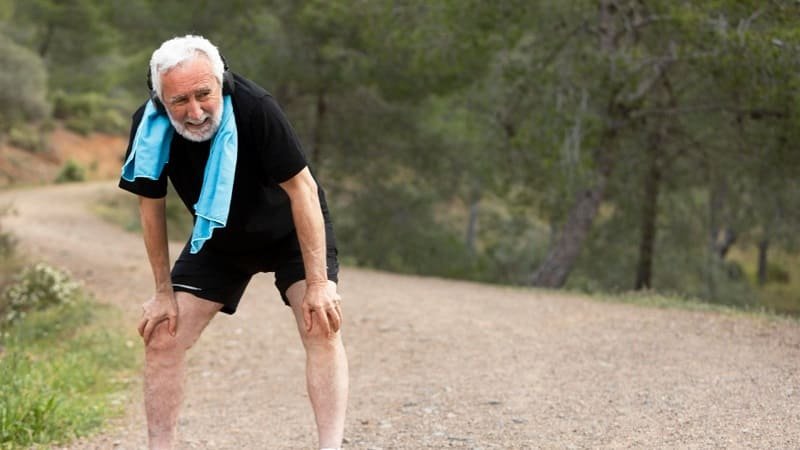Introduction:
As we gracefully age, maintaining good health becomes an essential component of enjoying a fulfilling and vibrant life. Aging doesn’t have to equate to a decline in well-being; rather, it can be a time of embracing positive lifestyle choices, preventive measures, and cultivating a positive mindset. In this extensive guide on “How to be Healthy in old age”, we will explore actionable tips and strategies for staying healthy in your senior years, ensuring a robust foundation for a thriving life.
Tip 1 - Embrace a Nutrient-Rich Diet
“The Power of Balanced Nutrition To be Healthy in Old Age”
Aging brings changes in metabolism and nutritional needs. To support overall health, focus on:
Well-Balanced Diet: Adopt a diet rich in fruits, vegetables, whole grains, and lean proteins. Consult with a nutritionist for personalized dietary recommendations based on your health status and requirements.
Hydration Matters: Combat common aging issues like joint pain and constipation by staying adequately hydrated. Aim for at least eight glasses of water daily and incorporate hydrating foods.
Tip 2 - Regular Exercise for Longevity
“Crafting Your Exercise Routine – To be Fit at old Age”
Physical activity is a cornerstone of healthy aging. Incorporate a mix of:
- Tailored Exercise Routine: Engage in regular physical activity, including aerobic exercises, strength training, and flexibility exercises. Seek guidance from a fitness professional for a routine suited to your health and fitness level.
Stay Active Daily: Integrate simple activities into your routine, such as walking, gardening, or dancing. Consistent movement contributes to joint flexibility and overall well-being.
Tip 3 - Prioritize Mental Health
” Nourishing Your Mind : To be Emotionally Strong in Old Age”
A sharp mind is crucial for a fulfilling life. Prioritize:
- Mental Stimulation: Challenge your mind with activities like puzzles, reading, or learning a new skill. Regular mental stimulation contributes to cognitive health and helps prevent conditions like dementia.
Social Connections: Nurture strong social ties. Regular interactions with friends, family, or community groups foster emotional well-being and reduce the risk of depression.
Tip 4 - Adequate Sleep and Stress Management
Recharge for Resilience: Strategies for Well-Being
Quality sleep and stress management are vital components of healthy aging:
- Quality Sleep: Prioritize sufficient and restful sleep. Create a sleep-friendly environment, maintain a consistent sleep schedule, and address any sleep-related issues promptly.
Stress Reduction Techniques: Practice stress management techniques such as meditation, deep breathing, or yoga. Chronic stress can contribute to various health issues, making it essential to find effective ways to relax.
Tip 5 - Regular Health Check-ups
Proactive Healthcare: Partnering with Professionals
Taking a proactive approach to healthcare involves:
Routine Medical Examinations: Schedule regular check-ups with healthcare professionals for screenings, vaccinations, and preventive care. Early detection is crucial for maintaining health in old age.
Medication Management: Keep an updated list of medications and follow prescribed regimens. Regularly review medications with your healthcare provider to prevent potential interactions or side effects.
Conclusion: How to be Healthy in Old Age
Embracing a healthy lifestyle in old age is a holistic journey that encompasses physical, mental, and emotional well-being. By incorporating these tips into your daily routine and maintaining open communication with healthcare professionals, you can ensure a fulfilling and vibrant life in your golden years.
Remember, consulting with healthcare professionals for personalized advice is essential. Adopting these practices can contribute to a long, healthy, and joyous journey through your senior years. Here’s to aging gracefully and staying well!
Faq Relating to How to be Healthy in Old age
Aging impacts metabolism and nutritional requirements. Maintain a well-balanced diet rich in fruits, vegetables, whole grains, and lean proteins. Consult a nutritionist for personalized guidance.
Seniors can benefit from a mix of aerobic exercises, strength training, and flexibility exercises. Consult a fitness professional to craft a routine that aligns with your health and fitness level.
Stimulate your mind with activities like puzzles, reading, or learning new skills. Cultivate social connections, as they contribute to emotional well-being and reduce the risk of depression.
Yes, sleep patterns may change. Prioritize a conducive sleep environment, maintain a consistent sleep schedule, and address any sleep-related issues promptly for quality rest.
Practice stress management techniques such as meditation, deep breathing, or yoga. Finding effective ways to relax is crucial for overall well-being in seniors.
Seniors should schedule regular check-ups with healthcare professionals for screenings and vaccinations. Early detection through routine examinations is key to maintaining health.
Yes, seniors can engage in physical activities. Incorporate daily activities like walking, gardening, or dancing to ensure consistent movement for joint flexibility and overall well-being.
Social connections play a crucial role in emotional well-being. Regular interactions with friends, family, or community groups reduce the risk of depression and contribute to a fulfilling life.
Seniors should focus on a nutrient-rich diet and stay hydrated. Include hydrating foods and consult with a nutritionist for personalized dietary recommendations.
Keep an updated list of medications and follow prescribed regimens. Regularly review medications with your healthcare provider to prevent potential interactions or side effects.









